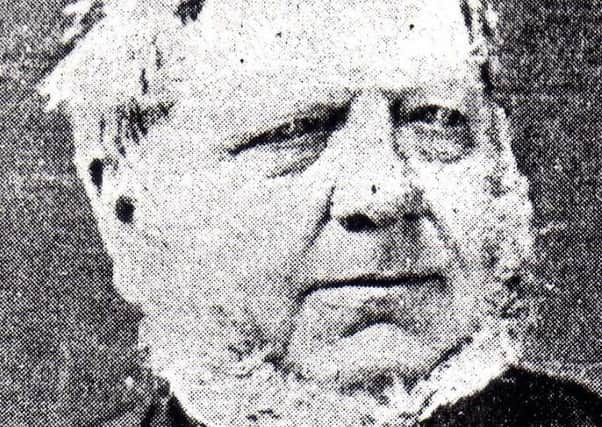Brewer marks cash to snare light-fingered employee


Back in 1830 the Government introduced legislation for the abolition of Beer Duty.
And for the working people of the growing Lancashire towns it meant that strong beer at a penny a pint in the inns and taverns was more attractive than the seedy gin palaces that had sprung up.
Advertisement
Hide AdAdvertisement
Hide AdIn the same year, the father of Matthew Brown died and he took over the shop his father had built in Pole Street in 1824, and decided to diversify from the small family farming business that had been developed at Samlesbury and later in Ribbleton.
Consequently, Matthew Brown (pictured), aged just 23, began to build a brewing business of great significance.
Gradually, he extended his premises, purchasing public houses, building others including his beloved Angler’s Inn, and persuading many publicans to trade with his much sought after beers alongside their home brews.
By the 1850s Preston had no fewer than 340 public houses or beer houses with many a landlord brewing their own.
Advertisement
Hide AdAdvertisement
Hide AdThe popularity of beer drinking was unquestionable and by 1856 Matthew Brown had built up a substantial business in Preston with numerous inns and taverns stocking his ales.
Inevitably hundreds of employees were eventually on his payroll, either directly or indirectly. On the third Monday of June 1856 one of his employees, Robert Woodhouse, appeared at the Police Court in the Town Hall before the mayor Richard Threlfall and a bench of magistrates accused of theft.
Over a couple of months money had frequently gone missing from the office in Pole Street, and subsequently Mr. Brown had directed his bookkeeper Mr. Bond to mark some money and place it in the tin cash box in the office, within sight of another employee who concealed himself in a corner of the room. The court heard that, within the hour, Woodhouse entered the office, gazed inquiringly around the room and then opened the cash box with a key and pocketed some of the cash.
After he had left Mr. Brown was told of the incident and P.S. Pool apprehended the accused who was found to have a shilling and a few coppers in his pocket, all of which had been marked. He at once admitted the theft and also stated that he had helped himself to cash on other occasions.
Advertisement
Hide AdAdvertisement
Hide AdMr. Bond addressed the court saying that his employer Matthew Brown wished the accused to be dealt with leniently. Remarking, that he was a young man who had for a number of years been a steady, sober and obedient worker.
Taking everything into consideration Woodhouse was sentenced to three months imprisonment with the magistrates telling him he had got off lightly.
The plea for mercy on behalf of Woodhouse was typical of the genial employer Matthew Brown, who became well known in agricultural circles and as a successful breeder of cattle and sheep as the years progressed.